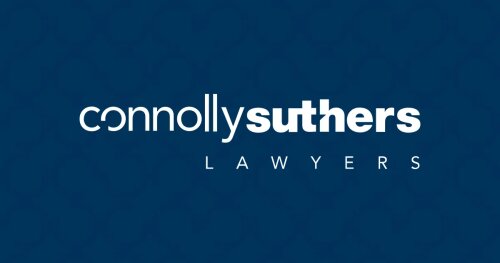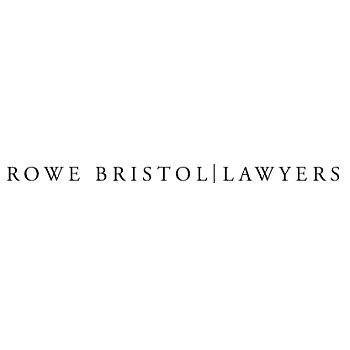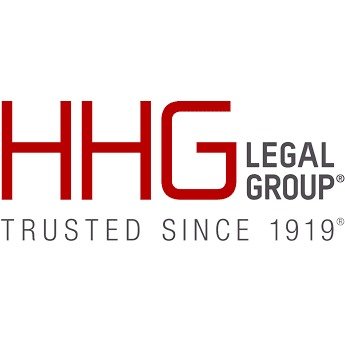Best Office Solutions Lawyers in Australia
Share your needs with us, get contacted by law firms.
Free. Takes 2 min.
Or refine your search by selecting a city:
List of the best lawyers in Australia
About Office Solutions Law in Australia
Office Solutions Law in Australia pertains to the legal frameworks and practices related to the provision and management of office environments, services, and technologies. This encompasses a variety of sectors including commercial leases, office equipment leasing, telecommunications, IT management, and office space agreements. These legal services ensure that businesses adhere to contractual obligations, occupational health and safety standards, and other regulatory requirements necessary for a functional and compliant office ecosystem.
Why You May Need a Lawyer
Engaging a lawyer with expertise in Office Solutions may be necessary in several situations. Businesses leasing office equipment or spaces often require legal guidance to navigate complex lease agreements or resolve disputes. Legal help may also be needed in contract negotiations for office services and supplies, ensuring compliance with local business regulations, and protecting intellectual property related to office operations. Additionally, companies may seek legal advice when implementing new technology solutions to ensure compliance with data protection and privacy laws.
Local Laws Overview
In Australia, several key legal aspects are pertinent to Office Solutions. Business contracts, whether for leasing office spaces or procuring services, fall under contract law which regulates the creation and enforcement of agreements. Occupational health and safety laws require employers to maintain safe working environments, impacting office configurations and conditions. Privacy laws, including the Australian Privacy Principles, must be complied with, particularly when handling employee and client data. Moreover, IT and telecommunications contracts are subject to laws concerning fair trading and competition.
Frequently Asked Questions
1. What types of office leases are common in Australia?
Office space leases in Australia typically include gross leases, net leases, and modified gross leases, each differing in the allocation of expenses and responsibilities between the landlord and tenant.
2. How do I handle a dispute with my office equipment supplier?
Disputes with an office equipment supplier can often be resolved by reviewing the contractual terms and negotiating a resolution. If needed, legal intervention might assist in mediation or taking further legal action.
3. What is essential in an IT services contract?
An IT services contract should clearly outline the scope of services, responsibilities of each party, confidentiality agreements, and compliance with relevant data protection laws.
4. What are the legal requirements for setting up a home office for employees?
While setting up a home office, it's important to ensure that the environment complies with occupational health and safety standards and that any required technology adheres to data privacy laws.
5. Are there regulations for telecommunication services in office settings?
Yes, telecommunication services providers in offices must comply with Australian communication and consumer laws, ensuring fair pricing, service reliability, and data security.
6. How do Australian privacy laws impact office environments?
Australian privacy laws impact how businesses collect, store, and use personal data within office settings and mandate compliance with the Australian Privacy Principles.
7. What steps can be taken if a commercial lease is breached?
If a commercial lease is breached, reviewing the lease agreement and seeking legal counsel to either negotiate terms or pursue litigation is advisable.
8. Is it legal to monitor employees’ emails and phone calls in the office?
Monitoring employees' communications involves privacy considerations and is generally permissible only if employees are informed and consent is obtained per workplace policies.
9. What needs to be included in a service-level agreement (SLA) for office solutions?
An SLA should include performance metrics, responsibilities, dispute resolution mechanisms, and confidentiality clauses related to the office solutions being provided.
10. How are office space rental agreements different from residential leases?
Office space rental agreements typically offer longer terms, different renewal options, and are subject to commercial property regulations, unlike residential leases which are focused on tenant rights and residential standards.
Additional Resources
Several resources can aid in understanding Office Solutions in Australia. The Australian Competition and Consumer Commission (ACCC) offers guidance on commercial regulations. Safe Work Australia provides information on occupational health and safety standards. The Office of the Australian Information Commissioner (OAIC) is a key resource for privacy laws. For small business support, the Australian Small Business and Family Enterprise Ombudsman (ASBFEO) can be helpful.
Next Steps
If you require legal assistance concerning Office Solutions, consider reaching out to a lawyer specializing in commercial law or contract law. It is advisable to gather all relevant documents and clearly outline your situation before consulting with a legal professional. Utilizing resources like the Law Society of your state or territory can help in finding qualified legal support. Consulting multiple legal advisors to compare services and fees is also beneficial as you proceed.
Lawzana helps you find the best lawyers and law firms in Australia through a curated and pre-screened list of qualified legal professionals. Our platform offers rankings and detailed profiles of attorneys and law firms, allowing you to compare based on practice areas, including Office Solutions, experience, and client feedback.
Each profile includes a description of the firm's areas of practice, client reviews, team members and partners, year of establishment, spoken languages, office locations, contact information, social media presence, and any published articles or resources. Most firms on our platform speak English and are experienced in both local and international legal matters.
Get a quote from top-rated law firms in Australia — quickly, securely, and without unnecessary hassle.
Disclaimer:
The information provided on this page is for general informational purposes only and does not constitute legal advice. While we strive to ensure the accuracy and relevance of the content, legal information may change over time, and interpretations of the law can vary. You should always consult with a qualified legal professional for advice specific to your situation.
We disclaim all liability for actions taken or not taken based on the content of this page. If you believe any information is incorrect or outdated, please contact us, and we will review and update it where appropriate.
Browse office solutions law firms by city in Australia
Refine your search by selecting a city.















